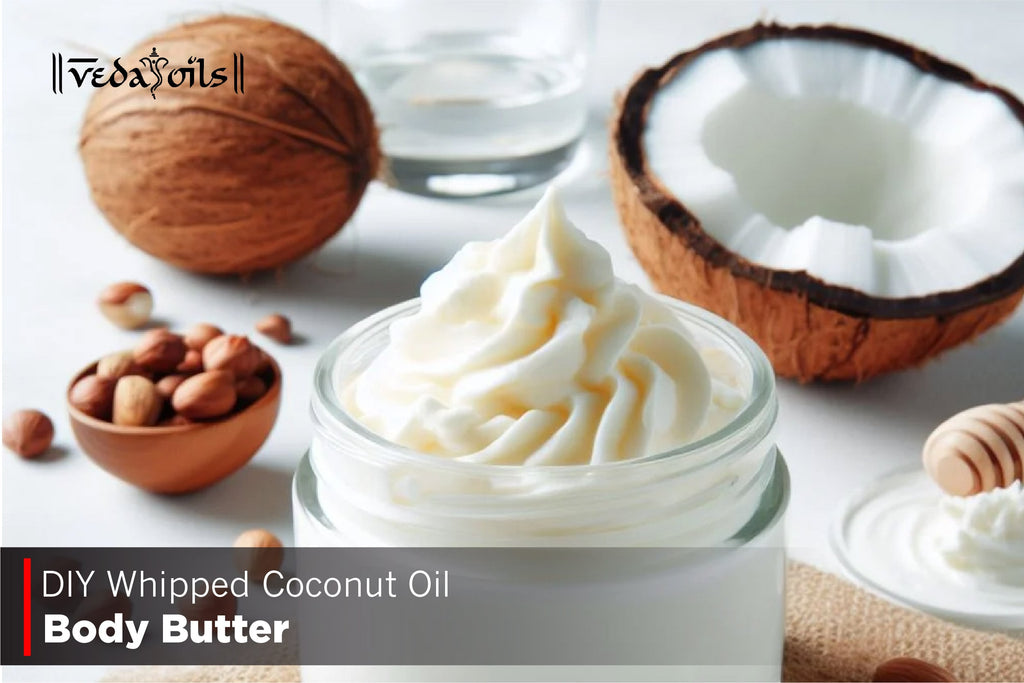Coconut Oil For Wound Healing - How To Use Guide?

Beyond its well-known benefits, Virgin Coconut Oil emerges as a remarkable aid in accelerating the healing process for cuts and wounds. Studies reveal that coconut oil possesses medicinal qualities, often surpassing antibiotics in potency, while remaining safe and promoting a faster rate of wound healing. Embrace the natural healing potential of coconut oil for optimal wound care.
Benefits Of Using Coconut Oil For Wounds
There are various ways that coconut oil might speed up wound healing. The anti-inflammatory and antioxidant properties of coconut oil are widely established. Its antimicrobial qualities aid in preventing would-related infection. Additionally, it aids in collagen production. Here are a few benefits that it has to offer:
1. Anti-Inflammatory
Coconut oil has anti-inflammatory qualities that can lessen discomfort and stop a wound from swelling. In addition to discomfort, wounds display redness and inflammation.

Coconut oil can be used topically or consumed to stop this. By lowering tissue inflammation and serum alkaline phosphatase activity, virgin coconut oil has anti-inflammatory and analgesic actions.
2. Antimicrobial
The antibacterial qualities of coconut oil can help wounds heal more quickly and effectively by preventing airborne contamination. Coconut oil is effective against Candida fungus, and hence it is useful for preventing fungus infections.

Fatty acids in coconut oil have been suggested to be the cause of their antibacterial properties.
3. Promotes Collagen Production
By encouraging collagen formation and bolstering the frayed collagen fibres, coconut oil helps wounds heal more quickly. The collagen fibres found beneath the epidermis are destroyed by wounds, therefore collagen synthesis is essential for wound healing.

Collagen is produced more readily when coconut oil is used. Coconut oil strengthens brittle and damaged skin by promoting collagen formation and increasing the cross-linking of collagen fibres.
4. Elevates Antioxidant Defences
The phenolic acids and polyphenol components in coconut oil are what give it its antioxidant abilities. This has the potential to lessen oxidative stress in wounds and significantly speed up recovery.

Oxidative stress in injured areas can make the wound worse and hurt people. It has been discovered that coconut oil lowers lipid peroxidation and hence oxidative stress is decreased.
5. Wound Healing
It has been discovered that coconut oil is a natural, efficient, and secure wound-healing agent.

By promoting the development of collagen and improving the formation of blood vessels, connective tissue cells, and damaged epithelial layers, coconut oil aids in the healing of wounds.
Coconut Oil For Wound Healing - How To Use?
Virgin coconut oil, the pure oil that is derived from fresh coconut meat before it has been dried, harnesses the healing properties of coconut oil for wounds. Virgin coconut oil offers higher anti-inflammatory antioxidants and is more effective at neutralizing free radicals. When coconut oil is applied to wounds, it works best when the wounds are still fresh.

Ingredients List
- Virgin Coconut Oil - 1 Tablespoon
- Band-Aid/ Sterile Bandage
- Sterile Gauze
Method
- Wash the wound under running water as soon as possible, then pat it dry.
- Using sterile gauze, generously apply coconut oil to the wound.
- If you would like, cover the cut with a bandage or sterile bandage.
- Apply coconut oil to your cut a few more times each day, and keep doing so while the wound is still healing.
Who Shouldn’t Use Coconut Oil?
Coconut oil is widely suitable for everyone except people with nut allergies which could lead to skin irritation, redness, and an allergic reaction.
Which Type of Coconut Oil is Best?
Virgin coconut oil is the best option available in the market as it is less processed and contains a more beneficial nutrient profile.
Conclusion
There are numerous advantages of coconut oil that might speed up wound recovery. By speeding up healing while maintaining safety, it is crucial in the treatment of wounds. It possesses every requirement that a potent healing agent must have. If you are thinking about including the miraculous Virgin coconut oil into your routine you can order yours from the website of Vedaoils. They are a leading manufacturer of 100% pure and organic coconut oil and have some amazing discounts.
Frequently Asked Questions:
Here are some frequently asked questions about Coconut Oil For Wound:
Q. Is Coconut Oil Safe For Wounds?
Ans: Yes, Coconut oil is safe for wounds. Applying virgin coconut oil to wounds accelerates healing, enhances antioxidant status, and boosts amounts of collagen, a crucial protein that promotes wound healing.
Q. Is Coconut Oil Safe For Cuts and Burns?
Ans: Yes, coconut oil is safe for cuts and burns. Applying virgin coconut oil to a burn or cut may help reduce swelling and lessen some of the discomforts because it has anti-inflammatory properties.
Q. Is Coconut Oil Safe For Open Wounds?
Ans: Yes, coconut is safe for open wounds. Due to the high content of monolaurin, a fatty acid known for its antibacterial properties, found in coconut oil, it can aid in the healing of open wounds.
You May Also Like:
Buy Products
-
 Cedarwood Essential Oil
Cedarwood Essential Oil -
 Lavender Essential Oil
Lavender Essential Oil -
 Sweet Almond Oil
Sweet Almond Oil -
 Tea Tree Essential Oil
Tea Tree Essential Oil -
 Virgin Coconut Oil
Virgin Coconut Oil
Related Articles
Disclaimer :- This article is intended for informational and educational purposes only and should not be considered a substitute for professional medical advice. For specific health concerns or treatment, please consult your personal physician. The article's editor, writer, and VedaOils organization do not assume any responsibility for any health outcomes resulting from the information provided. Readers are strongly encouraged to seek advice from their physician before acting on any recommendations made in these articles.
















 Sign in
Sign in Register now
Register now My Reward Points
My Reward Points









